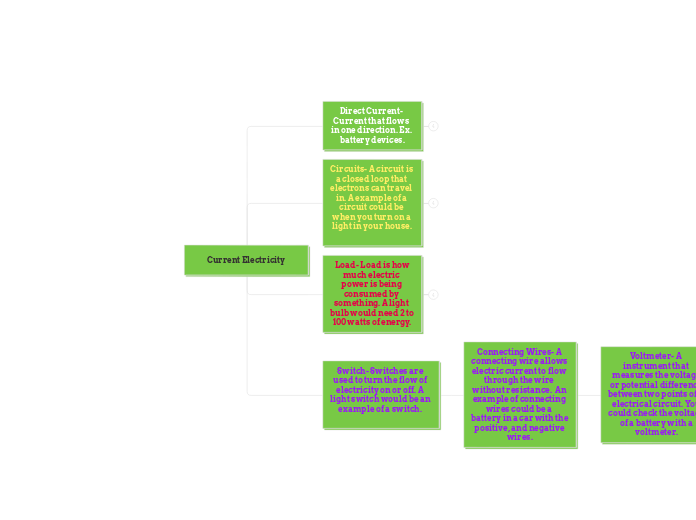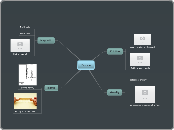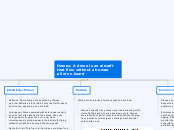M&G
References
UNSW
HSC online
AC Motors
Universal - all coils - with core opposing outerInduction - Outer field drives eddy current in core rather than from slip ringsTransformers
Electricity > Mag Field > Electricity
Transformers - An electrically powered electricity generator
More turns more volts
Laminations to hold field but stop current
Power
DC Generator is reverse DC motorAC Generator has windings on outside
3 phase has constant torquePowerline insulation and lightening wires
Insulation
Generators
Faraday Effect: Motor Effect separate + from -
Moving conductor in a field is a Battery
Lenz's Law - eddy currents maintain field and applies a drag force
Lenz's Law
Motors
Motor Effect
A current in a field has a palm push
Ampere's law
DC Motors have constant switched force, Maximum torque at max distance flat to field
Comutators make Coil always the wrong way
Motor Effect
Current creates a force
Applications
loudspeaker
Radial Field (Push up down)
Spring
Galvanometer
Axial Field (B is not a function of angle)
Force prop Current
Spring means deflection = current
DC Motor
Through Field
Comutator to change current
External Magnet
Electromagnet
Perminant
Commutator
Loop
Coil
t = BAincos(q)
n = turns
B = Field in tesla T
A = area x m times y m
i = current A
q= angle to mag field
One wire
t = Fd
Torque has units Newton meters
Vectors do not have to known
1nm clockwise
Wire
Two wires
F Force N newtons attractive
l Length m meters length of parallel wire
k 2E-7 magnetic constant
d separation m meters
I current A amps
The force of 1 N is read off the apparatus, defining the amp and thus also the coulomb
F/l = KII/D
Parallel Pull together
Anti Parallel = anti
Single wire
F = BIlSin(q)
- Field Strength (tesla T)
- I Current (amps A)
- l Length (m)
- Sin(q) angle
Magfields
Worked solutions
Drawing
in x Out .
Solenoid Loop
N -> S
Handrules
Solenoid finger flow in current , thumb points north
<object width="425" height="344"><param name="movie" value="http://www.youtube.com/v/G9Glw3BUTAQ&hl=en_US&fs=1&"></param><param name="allowFullScreen" value="true"></param><param name="allowscriptaccess" value="always"></param><embed src="http://www.youtube.com/v/G9Glw3BUTAQ&hl=en_US&fs=1&" type="application/x-shockwave-flash" allowscriptaccess="always" allowfullscreen="true" width="425" height="344"></embed></object>
Finger field, thumb up current, palm push
Grip wire








